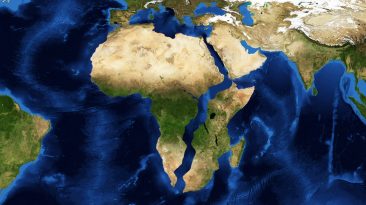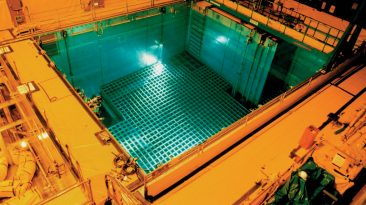What are the ingredients for an industrial revolution? It’s simple! Take some new energy sources, add a dash of cutting-edge communications technology, and top it all off with an emerging mode of transportation!
When our society goes through an industrial revolution, we spur economic growth, and completely change the world we live in. We’ve seen the effects of two already, so how would things change if we had a third?
What technologies would be involved? Would large corporations survive? And why do some people think it’s already started?
According to economist Jeremy Rifkin, we are already on the cusp of a third industrial revolution: a convergence of the Internet, renewable energy, and automated transportation.
If we embrace this transformation, it could de-centralize nearly every industry on Earth, giving more power to the people. How would this be an important weapon against climate change?
How long can a civilization exist surviving on a finite resource like fossil fuels? Well, we might find out sooner than we’d like.
According to Rifkin, our current economic system, and our planet will eventually expire if we don’t move away from a carbon-based world. So how do we do that? Well, it’s already started, and it was all triggered by our embrace of the World Wide Web.
Before the Internet, the cost to spread your knowledge and information was pretty expensive. For example, let’s say you wanted to share your ideas through a newspaper. Not only would you have to worry about the initial cost of setting up shop, but you’d also have to spend money for every single copy you made and distributed.
Nowadays, after the initial cost of accessing the Internet, you can produce unlimited copies of your ideas, and get them out to millions of people, without any further spending. This phenomenon is known as “zero marginal cost,” and it could be the foundation of the third industrial revolution.
With the Internet, hundreds of millions of people are producing and sharing music, videos, news blogs, and e-books essentially for free, bypassing the capitalist market altogether. We don’t have to rely on a couple of giant corporations to feed us all our information.
And now that phenomenon is expanding from the virtual world to the physical world of goods and services. For instance, let’s say that you and a bunch of neighbors want to start your own power grid, based on renewable energy.
Well with today’s technology, you could do that; and then you could even use that grid to power driverless cars to run a local rideshare program. You’d be creating a sustainable economic system that would essentially cost you nothing after the initial set-up.
If society embraces the possibilities of using the Internet, renewable energy, and automatic transportation together, it could re-structure our economy. Traditional corporations would be disrupted, and the power would be returned to local communities.
We’ll also be able to collect a lot more information about the world around us, allowing our economy to operate at top efficiency.
As we continue to place sensors on just about everything, we’ll be able to track things like flows of natural resources, traffic, and shipments. All this available data will allow us to increase productivity, decrease waste and our ecological footprints dramatically.
Sources
- “Make Way For The Third Industrial Revolution – We Don’t Have Time – Medium”. 2018. Medium. Accessed November 23 2018.
- “Will The Third Industrial Revolution Create An Economic Boom That Saves The Planet?”. Jeff, Beer, 2017. Fast Company. Accessed November 23 2018.
- “How Do We Get The Future We Want?”. 2018. Motherboard. Accessed November 23 2018.
- “How The Third Industrial Revolution Will Create A Green Economy”. Jeremy, Rifkin, 2015. Huffpost. Accessed November 23 2018.
- “The Rise Of The Internet Of Things And The Race To A Zero Marginal Cost Society”. Jeremy, Rifkin, 2015. Huffpost. Accessed November 23 2018.
- “Jeremy Rifkin On The Fall Of Capitalism And The Internet Of Things”. 2018. Youtube. Accessed November 23 2018.
- “The Third Industrial Revolution”. 2018. Youtube. Accessed November 23 2018.



























